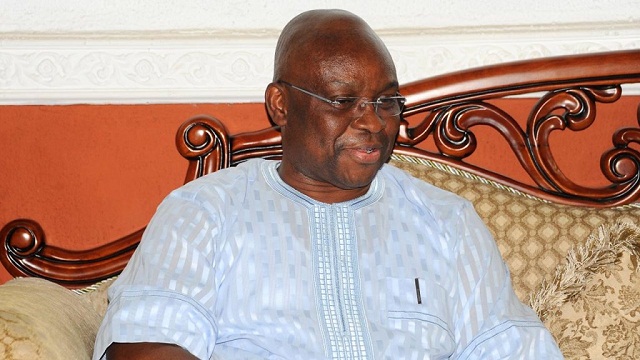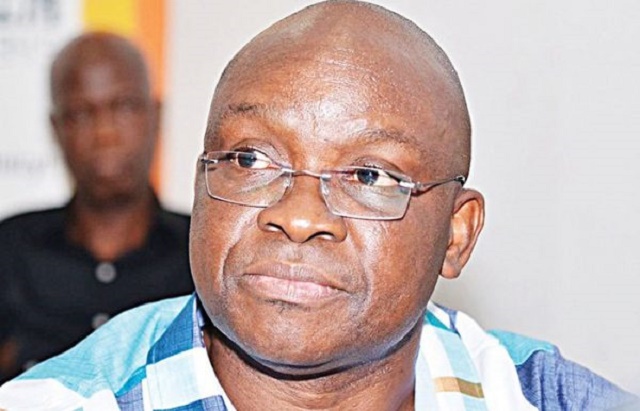From the results of the 16 local government areas in the state, Fayemi defeated Olusola in 12 LGAs, PunchNG reports.
Fayemi polled 178,913 while Olusola scored 178,114 votes.
The election witnessed a large turnout of voters and early arrival of the ad hoc staff and supervisors of INEC at polling units.
Voting materials also arrived early in many polling units across the state while voters conducted themselves well during accreditation process.
But tension set in as allegations of vote-buying were leveled against party agents by voters in some polling units. In some cases, the situation led to friction among loyalists of various political parties.
At Ward 12 in the Igbehin area of Ado-Ekiti, an elderly voter, who spoke on condition of anonymity, accused the All Progressives Congress of offering N5,000 to those who had the Permanent Voter Card to secure their votes. He said he rejected the offer.
“I was offered N5,000 to vote for the party but I rejected it. I am 73 years old retired teacher. I cannot allow the future of my children to be bought by moneybags. I don’t know how we descended to this level when people brazenly offer money to people to secure their votes. It was not like this in the past. Will our votes count with this problem?” he asked.
In Ayegbaju and Oye-Ekiti, it was alleged that party agents paid those who had no PVC N2,000 to vote in connivance with the INEC officials.
A source, who simply identified herself as Bimbo, said after those who had PVC had voted, some of the remaining ballot papers were thumb-printed by youths who had no PVC with the promise of financial gratification.
She said:
“If you look well and observe the polling units, the INEC officials connive to allow this thing to happen. They pretended to check the fingerprint but it is fraud they are perpetrating.”
The Peoples Democratic Party was also accused of offering voters N3,000 each to secure their votes. Apart from the reported N3,000 allegedly paid to some civil servants and pensioners by the PDP-led state government, the party agents were accused of going from house to house, approaching voters who possessed PVC.
INEC’s preparation, which the state Resident Electoral Commissioner, Prof. Abdulganiy Raji, had described as foolproof, failed some of the tests on the Election Day. Although election materials got to many of the polling units early, there were reports of the card readers failing to function properly.



